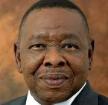NATIONAL ASSEMBLY
FOR WRITTEN REPLY
QUESTION 249
DATE OF PUBLICATION OF INTERNAL QUESTION PAPER: 20/02/2015
(INTERNAL QUESTION PAPER 2 OF 2015)
Mr M S Mbatha (EFF) to ask the Minister of Higher Education and Training:
What measures is he taking to ensure that universities, particularly a certain university (name furnished), transform, where out of a staff complement of over one thousand professors, only just over 40 are black?
NW268E
REPLY
The Department of Higher Education and Training has developed a "Staffing South Africa's Universities" Framework (SSAUF) to respond to the staffing challenges in the higher education sector in terms of the size, composition and capacity of its academic staff. The challenges are multi-faceted, concerning the slow pace of regeneration and transformation in the sector, the ageing workforce, developments in higher education worldwide that demand ever greater levels of expertise from staff, and the relatively low number of academic staff with doctorates.
The SSAUF will be a key vehicle to contribute to staffing transformation at universities and will prioritise the development of new black and/or women academics.
The SSAUF recognizes that in order to comprehensively address the staffing challenge, leverage points along the entire pathway for the development of new academics must be targeted. The SSAUF sets up five programmes to do this - three core programmes linked to the academic development pathway and two cross-cutting support programmes.
The three core SSAUF programmes are:
The Nurturing Emerging Scholars Programme (NESP), which will identify students who are beginning to demonstrate academic ability at relatively junior levels (senior undergraduate or honours), and who might be lost to the system unless structured, attractive prospects and opportunities are available and active recruitment efforts are undertaken;
The New Generation of Academics Programme (nGAP), which will recruit new academics against carefully designed and balanced equity considerations and in light of the disciplinary areas of greatest need, drawing from promising current senior post-graduate students or past students who hold appropriate post-graduate degrees and have ambitions or can be attracted to become academics. This group of current students/post-graduates will form the major cohort of what the SSAUF calls nGAP Scholars; and
The Existing Academics Capacity Enhancement Programme (EACEP), which will support the development of existing university academics, for example, through support to complete their doctoral studies or to address specific gaps with respect to teaching and research development, and community engagement.
Cutting across and supporting these three programmes are the following two initiatives:
The Supplementary Staff Employment Programme (SSEP), which will enable universities to recruit, in a temporary capacity, specific skills on a needs basis to address specific gaps as the overall staffing challenge is being addressed, and to support the implementation of other SSAUF programmes underway at the university; and
The Staffing South Africa's Universities Development Programme (SSAU-DP), which cuts across the three core programmes and supports academic staff development needs in each programme. The SSAU-DP has a focus on all the roles that academics need to fulfil, and at the beginning stages focuses particularly on teaching and research development. Key elements of the SSAU-DP are (in addition to PhD study) the provision of a mentor, participation in a range of short courses that address important teaching and research development issues, and an international mobility experience.
Whilst it is recognized that the SSAUF will achieve maximum impact when all the programmes associated with it are rolled out on a suitable scale, the SSAUF is set out in a manner that enables programmes to be rolled out individually or collectively, as funding allows.
The first phase of the SSAUF is being implemented in 2015, and involves the recruitment of approximately 150 young academics into the nGAP and supporting their development through the SSAU-DP.
Key differences between the nGAP and previous small-scale, largely donor funded ‘next generation' projects are that the nGAP comprises of permanent posts from the outset, which will undoubtedly reduce attrition, and the fact that the nGAP is a national, large-scale initiative that will when fully implemented, draw up to 400 young academics into the higher education system annually.
The target for each intake of nGAP posts is that 80% of the posts be filled by black South Africans women on the basis of clearly articulated equity plans, sustainability measures and staffing need.
The Department believes that the nGAP project, along with other components of the SSAUF, will contribute greatly to ensuring that all universities in South Africa will have rapidly growing numbers of black academics.
Issued by Parliament, March 4 2015
Click here to sign up to receive our free daily headline email newsletter

